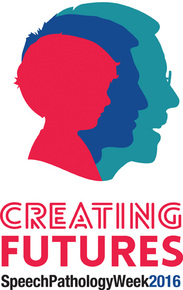Have you "researched" the psycho-neuro-cognitive-behavioural-braintraining methods? We've all heard and seen this jargon in marketing and popular media. "Researching" has come to mean looking something up on google (a far cry from conducting and evaluating actual academic research). Similarly, "Best Practice" has been used to describe well marketed or popular programs and methods that are widely accepted, whether or not they're effective or suitable to an individual. We also hear lots about "neuro...", "developmental...." and "cognitive...." et cetera. It seems the more jargon the higher the price tag, much like a designer logo.
The jargon was invented so academics and professionals in the field could efficiently communicate about specific concepts. It was not intended to replace Plain English and should not be used to impress, intimidate or persuade.
So, as parents, what can we do to cut through the marketing and the jargon, to find effective treatments for our children? How do we choose support services that will really make a difference for them?
Speech Pathology is an Applied Science, so we're trained to constantly question and measure whether what we do is effective. As a health service, we also have an ethical duty to use the most effective treatments based on the best scientific evidence available. This is what I call "best practice".
As a parent you are the expert on your child, their needs and what or who they respond well to. Ask as many questions as you need to find the right service for your child, then watch them and see for yourself whether the treatment is helpful.
The jargon was invented so academics and professionals in the field could efficiently communicate about specific concepts. It was not intended to replace Plain English and should not be used to impress, intimidate or persuade.
So, as parents, what can we do to cut through the marketing and the jargon, to find effective treatments for our children? How do we choose support services that will really make a difference for them?
- Seek out recommendations from people you trust eg. your child's doctor, their teacher, your friends and family, people who have been through similar difficulties.
- Use the websites of professional associations and regulation bodies to find certified practitioners eg: Speech Pathology Australia, Occupational Therapy Australia, Australian Psychological Association,
- Ring around services until you find someone who is qualified and experienced in treating your area of need, and can collaborate with other services as necessary.
- Choose a service that listens to you and seeks to meet your specific needs and concerns.
- Choose a practitioner that constantly evaluates progress and shares that information with you.
Speech Pathology is an Applied Science, so we're trained to constantly question and measure whether what we do is effective. As a health service, we also have an ethical duty to use the most effective treatments based on the best scientific evidence available. This is what I call "best practice".
As a parent you are the expert on your child, their needs and what or who they respond well to. Ask as many questions as you need to find the right service for your child, then watch them and see for yourself whether the treatment is helpful.

 RSS Feed
RSS Feed